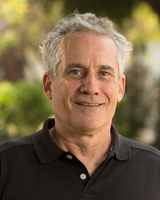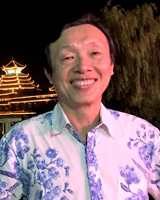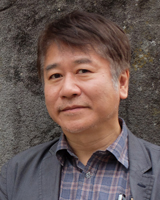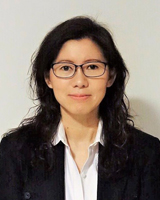

| Why it is So Difficult to Resolve Peacefully Intractable Conflicts? |
|---|
| The study of intractable conflicts and their resolution is an examination of a unique context and real-life societal issue. The ongoing conflicts in the Middle East, Kashmir, Sri Lanka, Chechnya, and Rwanda constitute prototypical examples of these types of conflict. The resolution of any conflict, but especially intractable conflicts involves complicated challenges that demand comprehensive solutions, always include change in the attitudes of leaders and powerful sections of society in order to generate support for solutions to these problems. This challenge is particularly difficult in these type of conflicts because they are fed by socio-psychological repertoire of beliefs, attitudes and emotions that support the continuation of the conflicts. For many engaged society members these beliefs and attitudes are central, held with high confidence, ego-involving, relevant to the present context, and related to the social identity. They are learned at an early age, in some cases reinforced through the years by the educational system, are maintained by the leaders, institutions and channels of communication, are expressed by the cultural products, are supported by positive reference group, and preserved by the context. They become powerful socio-psychological barriers that maintain intractable conflicts, as well as impede progress toward their peaceful settlement. These types of beliefs and attitudes are considered to be frozen, that is, even if alternative beliefs and attitudes are being presented, they are likely to be ignored, rejected, misinterpreted and/or forgotten because of the reigning cognitive-emotional structure and societal system that serve barriers to attitude change. Thus, one major challenge for scholars and practitioners is to overcome these deeply rooted barriers to unfreeze the held conflict-supporting beliefs and attitudes. Letter to conscious |

| World in Crisis: Epistemic Threat, Self-Uncertainty, and Extremist Social Identities |
|---|
| Building peace, and reconciling polarized groups and identities can be a challenge in times of global crisis and uncertainty. In this talk I overview a program of research into the motivational role played by self-uncertainty in group identification and group and intergroup behavior (Hogg, 2021a); with a focus on how self-uncertainty can motivate zealous identification with extremist groups and identities (Hogg, 2021b). People need a clear sense of who they are in order to understand the world and their place within it, and to plan their behavior and anticipate the behavior of others. People strive to reduce self-uncertainty, and can accomplish this by identifying with distinctive groups that have consensual, unambiguous and clearly defined social identities This proposition, developed by uncertainty-identity theory, has far reaching implications for our understanding of extremism and intergroup hostility. Tumultuous social change (associated with, for example, mass migration or a changing world order) can destabilize people's sense of who they are and make them feel alienated from and marginalized in society. This is a dangerous mix that can strengthen identification with ethnocentric and xenophobic groups that are intolerant of dissent and have autocratic leaders. Such groups are often associated with populist ideologies that promote conspiracy theories and victimhood beliefs oriented around how the "will of the people" is subverted by the malevolent actions of outgroups. Such groups and identities very effectively reduce uncertainty, but they also promote intergroup distrust and hostility that are amplified in online identity-confirming echo chambers. I close by suggesting some general considerations that might protect against populism, extremism and intergroup polarization and hostility. References - Hogg, M. A. (2021a).Self-uncertainty and group identification: Consequences for social identity, group behavior, intergroup relations, and society. Advances in Experimental Social Psychology, 64, in press. - Hogg, M. A. (2021b). Uncertain self in a changing world: A foundation for radicalization, populism, and autocratic leadership. European Review of Social Psychology, 32, in press. |

| Collective Remembering of the United States and China: From the Fall of a Liberal System of Global Dominance to Economic Prospects for World Peace |
|---|
| The way people remember their nation’s and the world’s history shapes the political culture of their nation, and for the most powerful nations, the political culture of the world. The United States and China are the two most powerful countries in the world today. The way they collectively remember the foundation of their respective nations, the heroes they revere, the institutional values their history inscribes, and the emotional climate of their recent pasts are strikingly divergent. Because of this, prospects for a unified global culture under liberal democracy are less likely now than they were at the peak of American power in the 1990s. Prospects for peace now center around how the capitalist democracy of the USA and the state-led capitalism of China can co-exist in the 21st century. The USA is a young culture but an old state, with foundational historical events now almost 250 years old. The institutional values of what it collectively remembers center around a quest for freedom (more than striving for equality). Over time, its quasi-religious beliefs about its historical quest for freedom have become an expansive ideology of liberalism, growing from Westward movement to “Defender of the Free World”. Victory in two world wars resulted in the rise of it as a military-industrial complex after WWII. The collapse of the Soviet Union in 1991 left it as the world’s sole superpower, but in the time that followed, the most important historical events for the USA have almost all been negative. 9/11 and wars in Afghanistan and Iraq that failed to win the peace, the 2008 financial crisis, and the 2020 pandemic have left it with a negative emotional climate, and a historical trajectory of decline. China is an old culture but a young state, with foundational cultural memories more than 2500 years old, but foundational memories of the state only 70 years old. Foundational memories for the culture center around Confucian ethics of benevolence (仁) and other moral virtues like propriety (禮); but Confucianism is barely remembered in the PRCs educational curriculum, and is consciously perceived as only vaguely relevant in the lives of ordinary people today (but it still has implicit impacts). Marxism by contrast is the focus of attention in China’s educational curriculum, but the contradictions between China’s state-led capitalist economy and the Communist doctrines of Marx, Lenin, and Mao leave this as a less than compelling ideology. Unlike the USA, China does not have an historical mission, except to defend its national interests. China has material goods and services, but little ideology or culture to export. It is led top-down by the Communist Party, which has adopted the market pragmatism pioneered by Deng Xiaoping. Contrasting with the USA, its recent historical memories have almost all been positive, and concern economic growth as national strength, now projected globally with the Belt and Road Initiative. Competition between the USA and China is for economic and political influence. It is not an ideological Cold War, as both have a significant commitment to free trade. China’s military has been largely limited to self-defense. Prospects for world peace appear to me to therefore revolve around negotiations around shared rules for sustainable and free trade, and developing a clear understanding of the different historical missions and trajectories of the two superpowers. |

| Reducing Variance or Helping the Worst-off? Behavioral and Neurocognitive Bases for Distributive Norms |
|---|
| Distributive justice concerns the moral principles by which we seek to allocate resources fairly among diverse members of a society. Although the concept of fair allocation is one of the fundamental building blocks of societies, the lack of clear consensus on how to achieve “socially just” allocations often yields bitter and fruitless disputes and divides among various social sectors. Here, I examine behavioral and neurocognitive bases for people’s distributive judgments. I argue that, although often conflated, people’s robust “inequality-averse” preferences are separable into two elements: (1) egalitarian concern about the variance and (2) maximin concern about the poorest (maximizing the minimum), and that the latter is more central to our allocation decisions than the former. I support this argument with a series of behavioral and neurocognitive experiments combined with computational modeling. The results of these experiments provide convergent evidence that: (1) People commonly exhibit spontaneous perspective taking of the worst-off position in allocation choices, irrespective of their distributive ideologies (utilitarian, egalitarian, or Rawlsian); (2) The dominance of this perspective emerges at a very early stage of decision making (around 500 ms after stimulus onset), suggesting that the maximin concern operates as a strong cognitive anchor almost instantaneously; (3) Such focus is further facilitated by group deliberation, yielding more coherent and long-lasting attitude changes. These results suggest that the Rawlsian maximin concern (as distinguished from the egalitarian concern for the smallest variance) may serve as a possible common ground for making distributive policies in our societies. References - Kameda, T., Inukai, K., Higuchi, S., Ogawa, A., Kim, H., Matsuda, T., & Sakagami, M. (2016). Rawlsian maximin rule operates as a common cognitive anchor in distributive justice and risky decisions. Proceedings of the National Academy of Sciences, 113(42), 11817-11822. https://www.pnas.org/content/113/42/11817 - Ueshima, A., & Kameda, T. (2020). Reducing variance or helping the poorest? A mouse tracking approach to investigate cognitive bases of inequality aversion in resource allocation. Manuscript in revision and resubmission. - Ueshima, A., Mercier, H., & Kameda, T. (2021). Social deliberation systematically shifts resource allocation decisions by focusing on the fate of the least well-off. Journal of Experimental Social Psychology, 92. https://doi.org/10.1016/j.jesp.2020.104067 |

Sylvia Chen
AASP President-elect
The Hong Kong Polytechnic University (Hong Kong)
sylvia.chen@polyu.edu.hk
| In Response to the COVID-19 Pandemic: The Contributions of Asian Social Psychologists |
|---|
| The coronavirus disease 2019 (COVID-19) outbreak has brought unprecedented challenges to not only public health but also social sciences. Since the severe acute respiratory syndrome (SARS) epidemic in 2003 stimulated psychological research related to infectious diseases, the importance of social factors and cultural norms has been recognized in promoting effective coping strategies and health behaviors in the general public. Based on the 2004 special issue on Psychology of SARS in the Asian Journal of Social Psychology, I will talk about reflections on the role of social psychology during the COVID-19 pandemic and the efforts made by Asian psychologists to cope with this crisis. Then I will talk about some empirical studies in Asia during the COVID-19 pandemic showing the interface between public health, personality and social psychological perspectives. It is suggested that multidisciplinary empirical research in health care and social sciences, personality and social psychology is needed for a clear understanding of how cultural values, social norms, and individual predispositions interact with policy to affect life-saving behavioral changes in different societies. |
Keynote SpeakerDaniel Bar-Tal
Biographical Note
Daniel Bar-Tal is Professor Emeritus at the School of Education, Tel Aviv University. His research interest is in political and social psychology studying socio-psychological foundations of intractable conflicts and peace building, as well as development of political understanding among children and peace education. He has published over twenty five books and over two hundred and fifty articles and chapters in major social and political psychological journals, books and encyclopedias. He served as a President of the International Society of Political Psychology and received various awards for his academic achievements.
Keynote SpeakerMichael Hogg
Biographical Note
Michael Hogg is Professor and Chair of Social Psychology at Claremont Graduate University, an Honorary Professor at the University of Kent, and past President of the Society of Experimental Social Psychology. He has received awards from the Australian Psychological Society, the British Academy, and the Society for Personality and Social Psychology; and is Editor-in-Chief of Group Processes and Intergroup Relations and Associate Editor of The Leadership Quarterly. He has published widely on social identity, group and intergroup processes, and influence and leadership.
Keynote SpeakerJames Liu
Biographical Note
James H. Liu (刘豁夫) is Professor of Psychology at Massey University in New Zealand. He has been influential in the development of the Asian Association of Social Psychology. His work is in social, cross-cultural, and political psychology, where he has co-authored over 200 publications, and is incoming Co-Editor-in-Chief of Political Psychology. His research specializes in social representations of history and identity politics, as well as trust, digital influence, and global consciousness. He identifies as a neo-Confucianist, following the footsteps of his philosopher father.
Keynote SpeakerTatsuya Kameda
Biographical Note
Tatsuya Kameda is Professor of social psychology at the University of Tokyo. His research has revolved around social decision making. He is currently studying the emergence of social norms in groups and its neuro-cognitive-ecological underpinnings, and the wisdom of crowds in collective decisions. Kameda has published more than 100 articles in scientific journals, including PNAS, Psychol Rev, Psychol Sci, Curr Dir Psychol Sci, PSPR, and JPSP.
Keynote SpeakerSylvia Chen
Biographical Note
Sylvia Xiaohua Chen is Professor of Department of Applied Social Sciences and Associate Dean of Faculty of Health and Social Sciences at the Hong Kong Polytechnic University. Her research focuses on the social psychology of bilingualism and biculturalism, personality and social behavior in cultural contexts, cultural diversity and mental health, and more recently, globalization and multiculturalism. Currently, she is President-Elect of the Asian Association of Social Psychology.